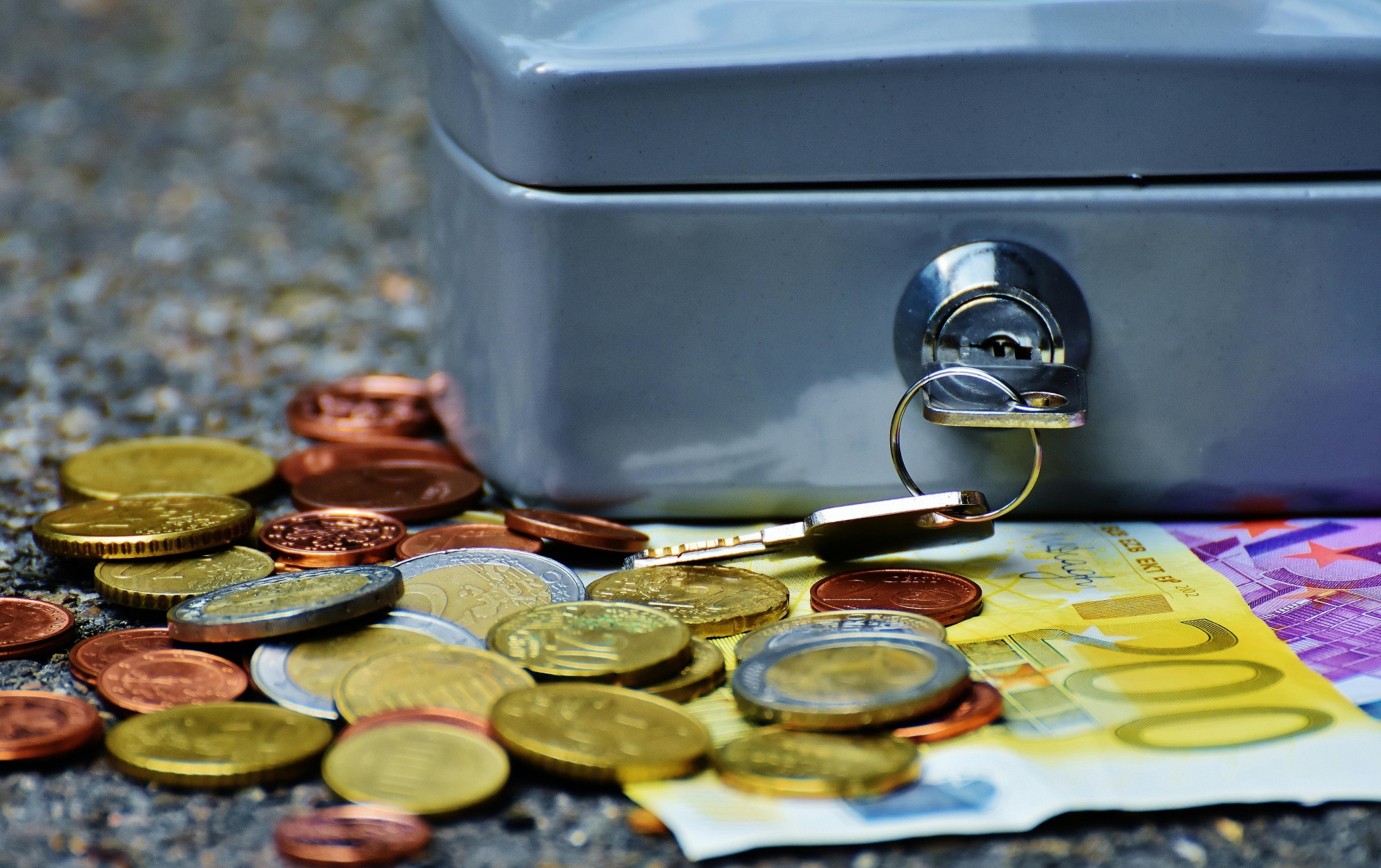Save
How to establish a budget
Learning how to keep your expenses within a set budget can help you save more money. But while budgeting is a necessary skill to achieve financial independence, it’s typically self-taught.
How to establish a budget
Learning how to keep your expenses within a set budget can help you save more money. But while budgeting is a necessary skill to achieve financial independence, it’s typically self-taught.

Budgeting is simple, and so is establishing one, but it requires a lot of self-control to actually execute and maintain a budget plan regardless of your income level.
Here’s what you need to learn about establishing a budget.
Create a personalised budget
Creating a budget plan will help you understand how likely you are to reach a goal and allow you to draw up a reasonable savings strategy.
Imitating a generic budget or someone else’s budget plan can be helpful to some extent, but since we all have different circumstances, it’s best to personalise your budget. To do this, consider the following steps:

Determine your income
List down all your sources of income that you can use, such as your salary and investment returns outside super. This step is necessary even if you have an irregular income because creating a budget plan based on your income is supposed to help you manage a decent lifestyle.
If you have an irregular income, you still need to list down how much you can usually expect without including one-time or conditional windfalls, such as commissions and bonuses for reaching quotas.
From this, take out your taxes and voluntary super contributions, if any, to reach your net income.
Track your spending
Once you’ve determined your net income, list down all your expenses and categorise them according to how necessary they are to maintain a decent lifestyle.
Take note of recurring expenses, especially those that are non-negotiable, such as utility bills, groceries and other living expenses. Consider opening a separate bank account that is set up to automatically pay for these fixed expenses.
Evaluate your other expenses and decide whether you can limit some of the recurring but non-essential expenses. You may also review your bank statements to check your transactions from month to month, as well as any unexpected expenses you may have encountered.
You may start tracking your monthly expenses in a notebook, spreadsheet or budget calculator application. Likewise, there are free mobile applications that does the job both for iOS and Android devices.
Tighten your budget
Go over the list a couple of times to pin down every possible expense, and once everything is written down, pinpoint unnecessary expenses, flag them for removal and tighten your budget for the recurring ones. The latter may be done by monitoring and reducing consumption to lower the bills. Switching to a lower-cost provider is also a good alternative.
Once you’ve adjusted your spending for your living expenses, you may top up your payment for any debt you may have, such as your student loan, if you have one.
Likewise, you may stash the extra money in your savings account.
Save money
Be strict about keeping expenses below your income: live within your means in order to free up enough money to save.
A good strategy is to limit spending to a weekly or daily allowance that already takes transportation and other necessary costs into consideration.
Likewise, paying off your debts, such as your student loan, earlier can help you increase your budget for other needs faster.
Your budget can only be effective and consistent when your debts are paid because you’ll no longer have to worry about ballooning interest payments.
Explore nestegg for more budgeting and saving ideas.
About the author

About the author


How to budget
Help to Buy switches on in WA: What the shared‑equity rollout means for banks, brokers and builders
Western Australia has joined the federal Help to Buy program, flipping the switch on a new stream of first‑home demand. The shared‑equity model reshapes risk, margins and distribution for lenders and ...Read more

How to budget
Australia’s first-home buyer reset: how policy, rates and competition will shape the rebound
After a flat first half of 2025, first-home buyer (FHB) activity is set to lift—nudged by a five per cent deposit guarantee and the Reserve Bank’s first rate cut since 2020. But a rebound won’t be ...Read more

How to budget
Australians Seek Bargains to Stretch Christmas Budgets Amid Rising Costs
As the festive season approaches, Australians are preparing to spend more on Christmas gifts and festive feasts compared to previous years. However, despite larger budgets, many are still on the hunt ...Read more

How to budget
Australians grapple with stubborn cost of living in 2025
In a year marked by persistent financial strain, only a meagre 7% of Australians believe that the cost of living has improved, according to the 2025 Household Budget Barometer released by Compare the ...Read more

How to budget
How to take control amid rising electricity costs
Energy bills are increasing for almost nine in ten Australians, forcing many to think outside the box when it comes to keeping costs and electricity usage down. While some are resorting to showering ...Read more

How to budget
Aussies get savvy with energy hacks as costs surge
As energy costs continue to climb across Australia, a recent study commissioned by Zip Co (ASX: ZIP) reveals that 91% of Australians are actively seeking innovative ways to reduce their energy billsRead more

How to budget
The psychology behind saving: Understanding and overcoming common barriers
Saving money is a fundamental aspect of financial security, yet many people find it difficult to set aside a portion of their income regularly. Read more

How to budget
Smart saving tips for first home buyers in Australia
Purchasing your first home is a significant milestone, but the path to homeownership in Australia can seem daunting due to the high property prices and competitive market. However, with the right ...Read more

How to budget
Help to Buy switches on in WA: What the shared‑equity rollout means for banks, brokers and builders
Western Australia has joined the federal Help to Buy program, flipping the switch on a new stream of first‑home demand. The shared‑equity model reshapes risk, margins and distribution for lenders and ...Read more

How to budget
Australia’s first-home buyer reset: how policy, rates and competition will shape the rebound
After a flat first half of 2025, first-home buyer (FHB) activity is set to lift—nudged by a five per cent deposit guarantee and the Reserve Bank’s first rate cut since 2020. But a rebound won’t be ...Read more

How to budget
Australians Seek Bargains to Stretch Christmas Budgets Amid Rising Costs
As the festive season approaches, Australians are preparing to spend more on Christmas gifts and festive feasts compared to previous years. However, despite larger budgets, many are still on the hunt ...Read more

How to budget
Australians grapple with stubborn cost of living in 2025
In a year marked by persistent financial strain, only a meagre 7% of Australians believe that the cost of living has improved, according to the 2025 Household Budget Barometer released by Compare the ...Read more

How to budget
How to take control amid rising electricity costs
Energy bills are increasing for almost nine in ten Australians, forcing many to think outside the box when it comes to keeping costs and electricity usage down. While some are resorting to showering ...Read more

How to budget
Aussies get savvy with energy hacks as costs surge
As energy costs continue to climb across Australia, a recent study commissioned by Zip Co (ASX: ZIP) reveals that 91% of Australians are actively seeking innovative ways to reduce their energy billsRead more

How to budget
The psychology behind saving: Understanding and overcoming common barriers
Saving money is a fundamental aspect of financial security, yet many people find it difficult to set aside a portion of their income regularly. Read more

How to budget
Smart saving tips for first home buyers in Australia
Purchasing your first home is a significant milestone, but the path to homeownership in Australia can seem daunting due to the high property prices and competitive market. However, with the right ...Read more













